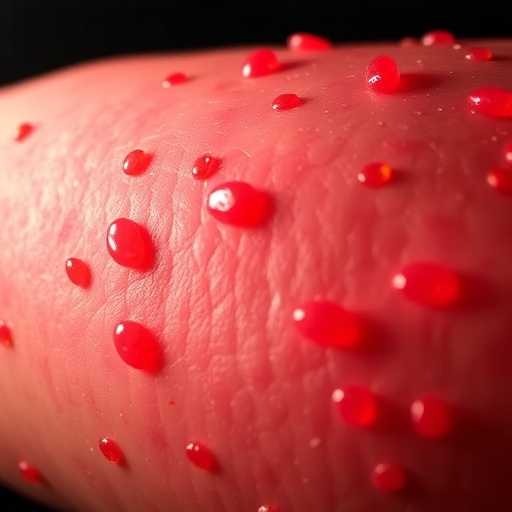
In a groundbreaking investigation into male fertility, a recent systematic review and network meta-analysis by Niu, Lu, Xie, and colleagues shed light on the effects of two popular supplementsâCarnitine and Coenzyme Q10 (CoQ10)âon sperm quality and pregnancy rates among men facing unexplained infertility. This study offers a compelling insight into how these nutrients may play a vital role in enhancing reproductive health, an area that has long been neglected in male fertility research.
The research scrutinizes a growing body of evidence surrounding the therapeutic potential of Carnitine and Coenzyme Q10. As the modern lifestyle contributes to a plethora of health issues, including declining sperm quality, understanding how these compounds might counteract such trends is crucial. The systematic review aggregated data from multiple studies to assess the efficacy of these supplements in improving sperm parameters and overall fertility outcomes, presenting a comprehensive analysis that aims to refine treatment strategies for male infertility.
Carnitine, a naturally occurring compound that plays a critical role in energy production, is found in high concentrations in the male reproductive system. Its potential to improve sperm motility has made it a prime candidate for fertility treatments. The meta-analysis revealed that supplementation with Carnitine significantly improved various sperm quality markers, including motility and morphology, which are essential for successful fertilization. This finding is particularly relevant given the increasing rates of male infertility attributed to lifestyle factors and environmental stressors.
Coenzyme Q10, another powerful antioxidant, has garnered attention for its role in cellular energy production and its potential protective effects against oxidative stress. The review highlighted that CoQ10 supplementation could also enhance sperm quality, particularly in men experiencing oxidative stress-related infertility. The cumulative evidence presented in the analysis indicates that both Carnitine and CoQ10 might work synergistically to improve overall sperm health, presenting a promising avenue for men struggling with fertility challenges.
Interestingly, the review also explored the nuanced relationship between these supplements and pregnancy outcomes. While improvements in sperm quality are essential, they do not always translate into increased pregnancy rates. This analysis took a deeper dive into how these supplements could influence reproductive success, examining their effects on both sperm parameters and the broader context of fertility treatments. The authors emphasize that future research must focus on the long-term implications of supplementation and how these factors integrate into existing infertility therapies.
The network meta-analysis approach utilized in this study allows for a robust comparison across various treatment modalities. By linking studies that employed different methodologies and outcome measures, the authors were able to provide a more comprehensive understanding of the efficacy of Carnitine and CoQ10. Such an innovative analytical framework sheds light on the comparative effectiveness of these supplements, offering a pathway for healthcare providers to tailor fertility treatments to individual patient needs.
In addition to examining the direct effects of these substances on sperm quality, the study raises essential questions about the underlying mechanisms through which Carnitine and CoQ10 exert their beneficial effects. The authors postulate that the antioxidant properties of these compounds could mitigate the harmful effects of oxidative stress on sperm, potentially improving mitochondrial function and energy production, which are critical for sperm motility.
Moreover, the findings underline the significance of addressing lifestyle factors that could further enhance the efficacy of such treatments. The authors recommend a holistic approach to male fertility challenges, encouraging men to adopt healthier lifestyle choices, including balanced nutrition, regular exercise, and stress management. These changes, combined with supplementation, could synergistically improve fertility outcomes, leading to greater success rates for couples attempting to conceive.
The implications of this systematic review extend beyond clinical practice. It also emphasizes the need for more extensive public health initiatives focused on male reproductive health. Increasing awareness about the impact of environmental toxins, dietary choices, and lifestyle patterns on fertility is crucial. As the demand for assisted reproductive technologies continues to grow, so too does the need for a deeper understanding of male fertility and the integration of innovative strategies to improve reproductive outcomes.
The study also evokes discussions about the accessibility and use of supplements like Carnitine and CoQ10 as part of standard care in fertility clinics. As more couples seek assistance in their journey to conceive, the integration of these supplements into treatment protocols could represent a shift towards more comprehensive care. The authors advocate for clinicians to consider these options, particularly in patients with unexplained infertility, to enhance the potential for successful pregnancies.
In conclusion, the systematic review by Niu and colleagues provides a pivotal contribution to the field of reproductive health. By elucidating the positive impacts of Carnitine and CoQ10 on sperm quality and pregnancy rates, the study underscores the potential for these supplements to become integral components of male fertility treatments. As research continues to evolve, there is hope for greater understanding and improvement strategies for unexplained infertility, enabling many couples to realize their dreams of parenthood.
As we move forward in addressing male infertility, this research acts as a catalyst for further studies exploring the intersection of nutrition, lifestyle, and reproductive health. In an era where fertility challenges are increasingly common, embracing an integrative approach that includes both medical and lifestyle interventions may pave the way for improved outcomes in the realm of male fertility.
The findings of this comprehensive analysis serve as a reminder that fertility is a multifaceted issue requiring an interdisciplinary effort to tackle effectively. By focusing on the potential of nutritional supplements, we are reminded of the critical link between health and reproductive success, underscoring the importance of ongoing research in this vital area of human health.
With the insights provided by this analysis, it is likely that the understanding of male reproductive health will continue to evolve, leading to novel treatments that enhance fertility and ultimately support family building efforts. As clinical evidence mounts, it will be imperative to translate these findings into practical interventions that can make a real difference in the lives of those facing fertility challenges.
Strong awareness and advocacy for male fertility health will be necessary to address the stigma and misconceptions often surrounding it. Building a supportive platform that educates men about their reproductive health and the available solutions will ensure that more individuals access the help they need. This comprehensive exploration of the role of Carnitine and CoQ10 in improving sperm quality is not just a step forward in scientific understanding but also a beacon of hope for countless men and couples navigating the complex journey of infertility.
Subject of Research: Effects of Carnitine and Coenzyme Q10 on Sperm Quality and Pregnancy Rates
Article Title: Effects of Carnitine and Coenzyme Q10 on Sperm Quality and Pregnancy Rates in Men with Unexplained Infertility: A Systematic Review and Network Meta-Analysis
Article References:
Niu, C., Lu, X., Xie, Y. et al. Effects of Carnitine and Coenzyme Q10 on Sperm Quality and Pregnancy Rates in Men with Unexplained Infertility: A Systematic Review and Network Meta-Analysis.
Reprod. Sci. (2025). https://doi.org/10.1007/s43032-025-01958-9
Image Credits: AI Generated
DOI: 10.1007/s43032-025-01958-9
Keywords: Carnitine, Coenzyme Q10, sperm quality, pregnancy rates, unexplained infertility, systematic review, network meta-analysis.
Tags: Carnitine and CoQ10 in male reproductive healthCarnitine supplementation for male fertilityCoenzyme Q10 effects on sperm qualityenhancing pregnancy rates with supplementsevidence-based fertility researchimpact of modern lifestyle on sperm qualityimproving sperm motility with nutrientsmale infertility treatment strategiesreproductive health and dietary supplementssystematic review on fertility supplementstherapeutic potential of fertility nutrientsunexplained infertility solutions




